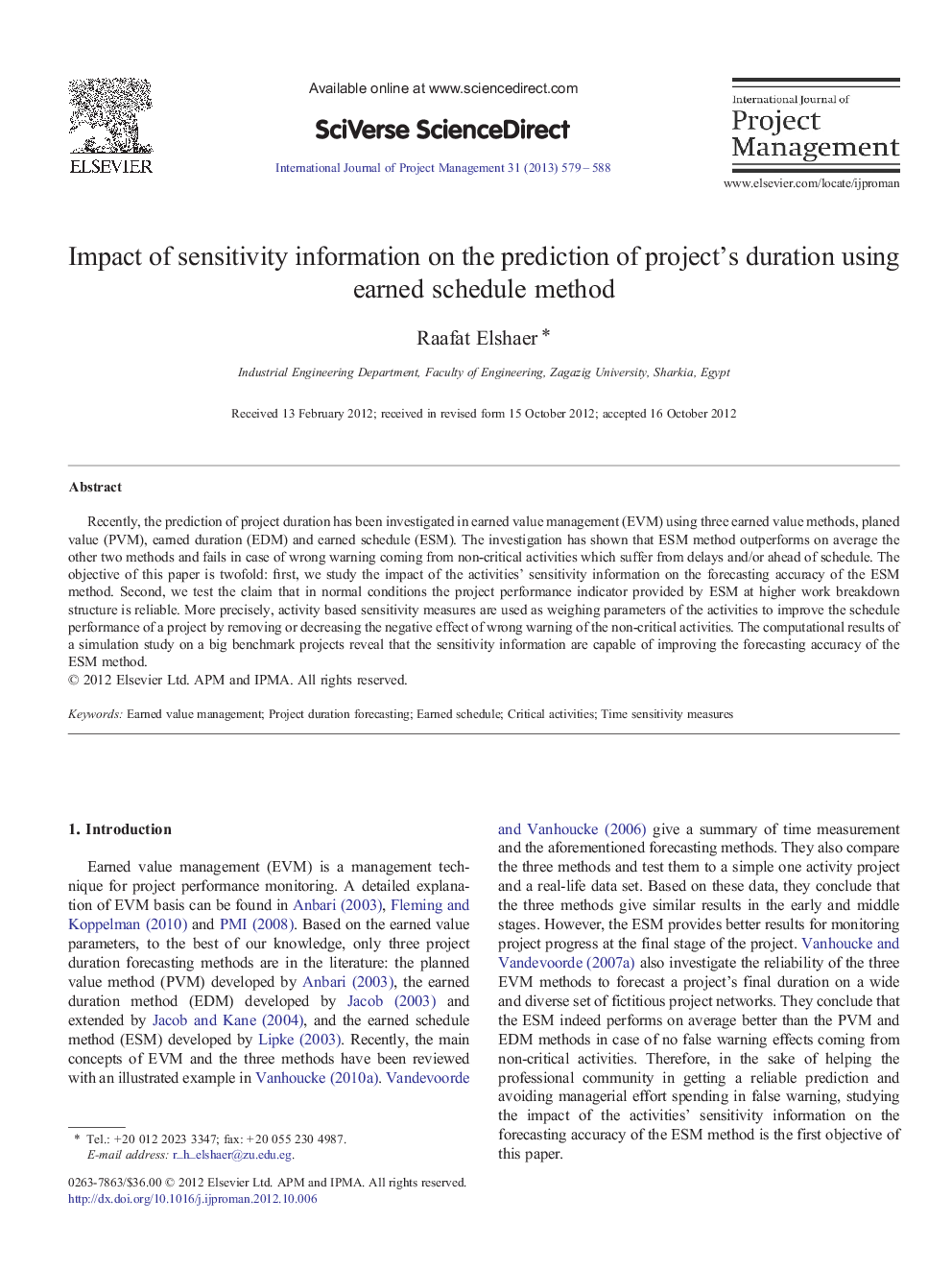| Article ID | Journal | Published Year | Pages | File Type |
|---|---|---|---|---|
| 275961 | International Journal of Project Management | 2013 | 10 Pages |
Recently, the prediction of project duration has been investigated in earned value management (EVM) using three earned value methods, planed value (PVM), earned duration (EDM) and earned schedule (ESM). The investigation has shown that ESM method outperforms on average the other two methods and fails in case of wrong warning coming from non-critical activities which suffer from delays and/or ahead of schedule. The objective of this paper is twofold: first, we study the impact of the activities' sensitivity information on the forecasting accuracy of the ESM method. Second, we test the claim that in normal conditions the project performance indicator provided by ESM at higher work breakdown structure is reliable. More precisely, activity based sensitivity measures are used as weighing parameters of the activities to improve the schedule performance of a project by removing or decreasing the negative effect of wrong warning of the non-critical activities. The computational results of a simulation study on a big benchmark projects reveal that the sensitivity information are capable of improving the forecasting accuracy of the ESM method.
► Investigating impact of sensitivity measures on the forecast accuracy of ESM. ► Four activity sensitivity measures, CI, SI, SSI, CRI, are used. ► ESMCI is considered the best in improving the performance of ESM. ► ESMCI is capable of removing false warning coming from non-critical activities. ► In normal conditions, ESM is considered a reliable tool at project cost level.
